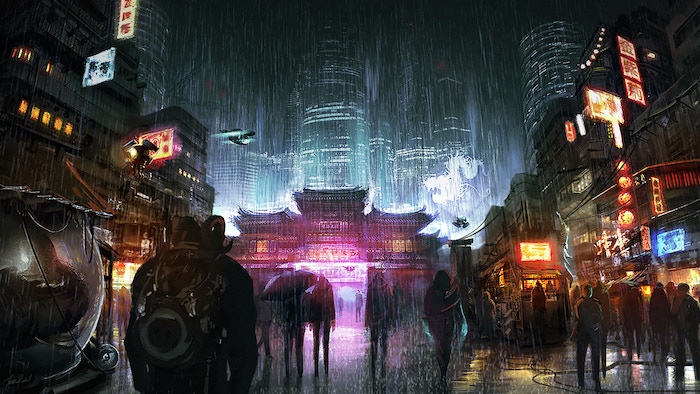Lol, took me a minute to figure out you’re literally talking about a football match happening now. I was re-reading my comment thinking “Wait, what’s this got to do with Ukraine? Did the Romanian government do something that hit the news I don’t know about? What does this mean?!?” xD
Linux server admin, MySQL/TSQL database admin, Python programmer, Linux gaming enthusiast and a forever GM.
- 0 Posts
- 142 Comments
Probably most countries think so of themselves.
Funnily enough, Romanians are the exact opposite in this regard. Romanians tend to think that Romania is terrible, backwards, and filled with awful people. That isn’t exactly the case (like any country, it has it’s pros and cons, and there’s a lot we need to work on) but it is how they tend to see it.
No, I’m not talking about the 1936 constitution. I meant specifically the disempowerment of local and union soviets.
I’m no expert on Russian history, so I may be misinformed about this, but as far as I understand it he put in place a series of reforms that stripped power from the local level and empowered the central committee.
Are the concepts of freedom and working towards collective good so mutually exclusive?
Not necessarily, and I also disagree with the commenter above that without the USA suddenly the world would be singing kumbaya.
The problem was dictators seizing power in turbulent times. In Russia, Stalin abolished the soviets (A.K.A worker’s councils, kinda like mega unions) in the Soviet union. I think that says a lot.
In Romania (I’m a bit better equipped to talk about this one), things were a bit different.
The original communist government (1945) was essentially a Russian puppet state that drained the wealth of Romania via war reparations. Stalinist purges happened often during this period.
During the 1950s and early 1960s, Romania got a degree of independence and things were actually looking up. Society in general (infant mortality, gender equality, literacy, standard of living, etc) were all improving rapidly without Russia draining us and making decisions for us, and we didn’t have a surveilance state of the scale that would come later. This was a period marked by political battles between the liberal communists and the Stalinist communists for control, with Stalinists commiting some pretty horrible atrocities (if you want nightmare fuel for some reason, look up the Pitesti experiment).
Then, 1965, Ceacescu took power. During his early years, he actually looked like a liberal (EDIT: Just to be clear: I mean a liberal communist. This means more individual freedom for citizens in a communist economy). He allowed some emigration, some free speech, and even spoke out about the 1968 invasion of Czechoslovakia. This, at the start, did not look like a typical authoritarian communist state. Unfortunately, Inspired by the “amazing” society of North Korea in 1971, he started to make changes in the structure of society to be more like it, which included an expanded Securitate. 2 years later, harsh austerity policies to repay foreign loans led to a massive drop in living conditions, which led to riots, which led to crackdowns. Things rapidly spiralled, and the Securitate were given more and more power to keep control.
This then became the police state that everybody thinks of when they think of communism. A combination of too much power in 1 person’s hands, an authoritarian imperialist overlord (Russia), and rising backlash against dropping living conditions.
Here you go. knowyourmeme.com is an excellent site for questions like this!

 33·1 month ago
33·1 month agoAs long as the next line also has 5 spaces, that’s fine. Python only complains about inconsistency, not the exact number of spaces/tabs.
by any reasonable metric you choose Valve is at best as deeply invested in MTX
Completely agree with this. I honestly believe the best apples-to-apples metric is to look at their most popular games and compare the mtx across them, in which case Valve doesn’t exactly come across as good in the comparison.
In terms of publishing, with the exception of Aperture Hand Lab (basically a little tech demo), they haven’t published any third party developer’s game since 2010. For the purposes of this conversation, I think it’s fair to count EA subsidiaries as EA.
When you make no games you make no MTX
Absolutely, this was the counterpoint I was trying to make about the raw “number of games” argument.
EDIT: Oh, I see the misunderstanding! I mean “published” as “financially backed the development, advertising and releasing of the game”, not “published to their storefront”. Same word with multiple meanings can be a major source of misunderstandings.
EA has released way more games with no games-as-service stuff in them than Valve in the past decade.
To be fair, EA has released way more games, period. This is across every category. Valve is primarily a digital marketplace company that sometimes makes a game, and has been for a long time.
Also, I didn’t include EA as publisher, because it would drastically change the conversation. It’s not part of Valve’s overall business strategy (again, because they’re primarily a marketplace company now) so it’s not apples to apples. They simply don’t publish externally developed games, because why would they when they run Steam?
Just googled their latest 2 releases to compare. Sims 4: For Rent, a cash-grab low-effort Sims DLC, doesn’t have microtransactions while Counterstrike 2 does.
EDIT: Neither does their last full game release, EA Sports WRC. Their upcoming game, F1 24 looks like it’s absolutely riddled with mtx though.

 1·2 months ago
1·2 months agoI agree with everything you say here, but I thought the setup-payoff joke structure and the fact I intentionally swapped testing and production for comedic effect made it obvious enough. I guess Poe’s law strikes again.

 1·2 months ago
1·2 months agoEvery software project, without exception, has a testing environment.
Some even have a separate production environment too.

 0·2 months ago
0·2 months agoShould be an option to allow/disallow non-instance users to vote. That’d be really useful here in sh.itjust.works for the Agora.

 2·2 months ago
2·2 months agoI didn’t mean to claim that the British Empire were the good guys. I was just pointing out the silliness of only looking at one very narrow fact to make a country look good, while ignoring the wider context.
Simple. You trade wool for a club, then use the club to take the bricks. Finally, use the club to take back your wool. Perfect economic system!

 1·2 months ago
1·2 months agoIf you’re going to separate out mainland Portugal and its overseas territories like that, then technically slavery was never legal in England.
Of course, we have pigs running the police and government. Super standard :))
Not true. First of all, Europe is not a monolith. Romania is extremely different from the Netherlands. Romania is, by some metrics, more car-centric than the US.
Secondly, even in countries that are trying to make progress towards a less car-centric environment, different cities are moving at different speeds.
Finally, even in cities moving faster away from it, you still have planning, funding and political issues that need to be ironed out.

 1·3 months ago
1·3 months agoThe best use case for purchasing FOSS software is contractor work, specific modules for existing platforms and/or FOSS projects. I’ve done that myself in the past. The client pays for the custom software, it’s written, and then they gets to do absolutely whatever they want with it. If the client wants to publish it, they’re well within their rights. Most of the time it’s too entangled with their internal company workflow to be useful to anyone else though.






Here’s a great little mini-documentary on that I saw on exactly that a few months back. Sikh temples seem amazing in terms of the sheer numbers of people they feed with no limiting criteria.